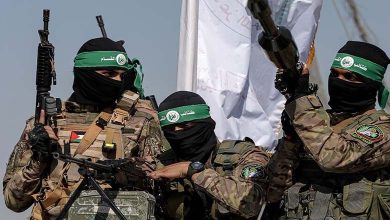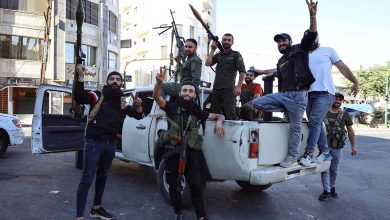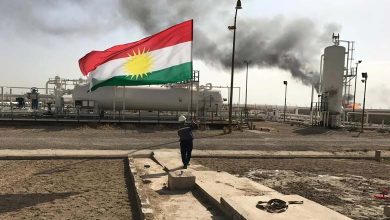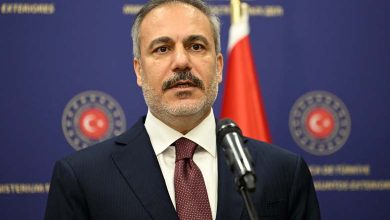Washington rules out using Hamas as a means of pressuring American hostages

The U.S. Army has suspended the flights of drones in Gaza for reconnaissance purposes and to search for hostages, in compliance with the ceasefire between Hamas and Israel. The White House stated on Tuesday that U.S. officials do not see any indications that Palestinian Hamas fighters are refusing to release American hostages in Gaza for use as a means of pressure, while Washington is making efforts and exerting pressure for the release of all detainees. The United States believes that Hamas is holding between eight and nine American hostages after the release of a four-year-old girl.
John Kirby, the spokesperson for the National Security Council, indicated in a White House press conference about a week after Hamas attacked settlements in the Gaza Strip on October 7th, resulting in the deaths of 22 American citizens and leaving another 17 Americans missing, with a subsequent reduction in the number. President Joe Biden has shown great concern for the issue of hostages, directing all diplomatic and military efforts to secure their release, while his Secretary of State, Antony Blinken, is making his third visit since the Hamas attack to work towards releasing all hostages.
Washington has redirected drone flights in the Gaza Strip for reconnaissance purposes and the search for hostages, while the U.S. Department of Defense (Pentagon) announced on Tuesday that the U.S. Army has suspended its flights during the ceasefire between Israel and Hamas.
Pentagon spokesperson Brigadier General Patrick Ryder stated in a press conference, “In compliance with the agreement reached between Israel and Hamas, we are currently not conducting these reconnaissance and monitoring operations. Therefore, they have been temporarily suspended at this time.”
Hamas criticized the unequivocal U.S. support for Israel in the war and the supply of weapons, as internal pressure in America intensifies to end the fighting and support a still fragile ceasefire.
Senior U.S. officials state that the United States is requesting Israel to pay greater attention to protecting civilians and minimizing damage to infrastructure if it launches an attack in southern Gaza. This marks a more explicit approach to protecting Palestinians.
This move represents a clear shift in the policy of President Joe Biden‘s administration after strong local and international criticisms. It also comes a month after the White House announced that it had not set “red lines” for Israel’s response to the attack by the Palestinian Islamic Resistance Movement (Hamas) on October 7th, which Israel claims led to the deaths of 1,200 people.
The Israeli attack in northern Gaza was devastating, resulting in the deaths of thousands of Palestinians and the spread of diseases, displacing vast numbers of survivors forced by relentless bombing and shortages of essential supplies such as food, water, and electricity to flee to southern Gaza.
As Israel considers turning to the south to continue the war against Hamas after the cessation of hostilities for the release of hostages, U.S. officials state that they are in talks with Israelis about paying more attention to the south, where there are currently around two million people.
Officials told reporters in a telephonic conference that the message was conveyed by the U.S. side at various levels, starting with President Joe Biden. One official added, “We made it very clear in very explicit language with the Israeli government… It is very important that the Israeli campaign be implemented when it moves to the south in every way so as not to lead to further large-scale displacement of the population.”
The official continued, stating that the scale of displacement that occurred in the north should not be repeated in the south, as it would be more chaotic and beyond the capacity of any humanitarian support network to handle. He emphasized that infrastructure targets such as power stations, water facilities, and humanitarian sites, including hospitals, in southern and central Gaza must be avoided.
He added that Israelis accepted the idea of the “necessity of conducting a different type of campaign in the south,” amid concerns that southern Gaza could become a more complex battlefield.
Amid the decision to extend the ceasefire, Hebrew newspapers reported that the office of Israeli Prime Minister Benjamin Netanyahu received, late on Tuesday/Wednesday, a list of hostages who would be released on Wednesday as part of the sixth batch within the prisoner exchange deal with Hamas.
Haaretz newspaper stated, “The office of Prime Minister Benjamin Netanyahu announced, confirming the receipt of a new list of detainees in the Gaza Strip to be released today (Wednesday),” without providing details. The newspapers did not mention the number of those to be released.












